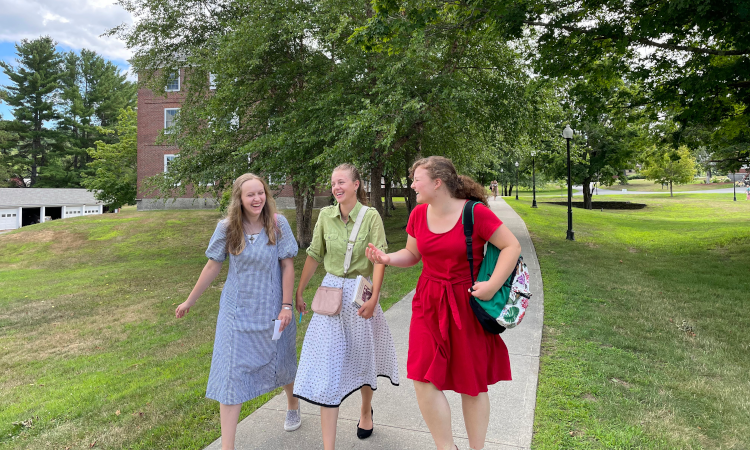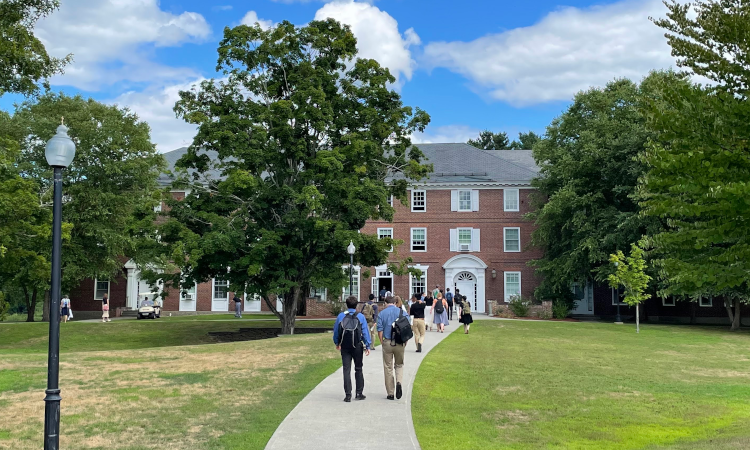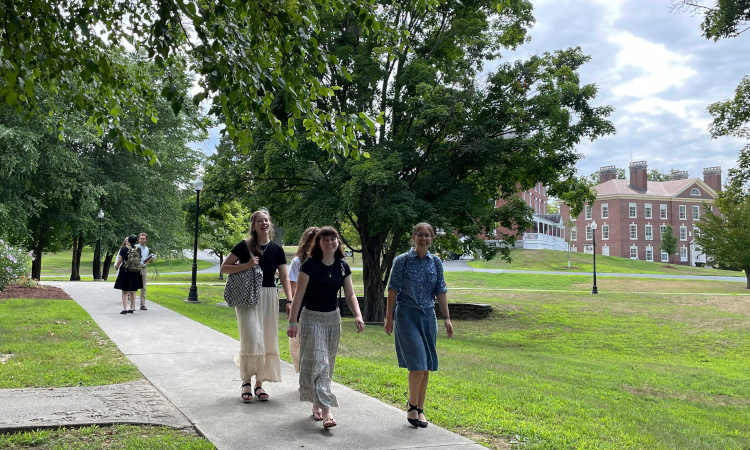- Home
-
About
 Fidelity & Excellence
Fidelity & ExcellenceThomas Aquinas College is unique among American colleges and universities, offering a faithfully Catholic education comprised entirely of the Great Books and classroom discussions.
-
A Liberating Education
 Truth Matters
Truth MattersTruth, and nothing less, sets men free; and because truth is both natural and supernatural, the College’s curriculum aims at both natural and divine wisdom.
-
A Catholic Life
 Under the Light of Faith
Under the Light of FaithThe intellectual tradition and moral teachings of the Catholic Church infuse the whole life of Thomas Aquinas College, illuminating the curriculum and the community alike.
-
Admission & Aid
 Is TAC Right for You?
Is TAC Right for You?Do you enjoy grappling with complex questions? Are you willing to engage in discussions about difficult concepts, with the truth as your ultimate goal?
-
Students & Parents
 Mind, Body & Spirit
Mind, Body & SpiritThere is always something to do at TAC — something worthwhile, something fulfilling, and something geared toward ever-greater spiritual and intellectual growth.
-
Alumni & Careers
 What Can You Do with a Liberal Education?
What Can You Do with a Liberal Education?Nothing speaks more to the versatility of the College’s academic program than the good that our alumni are doing throughout the Church and the world.
- Search
- Giving
The Consolation of Geometry

With a weekend of travels and fun activities behind them, students on the New England High School Summer Program entered Gould Commons this morning with a strange sense of anticipation. Their first class of the day was on Euclid’s Elements, and today they would tackle definitions, postulates, and common notions. For most, it was their first time encountering geometry of this kind, and people wondered what they would do for the whole hour-and a-half-long class. After all, all they had to discuss were some seemingly straightforward definitions: How much could there be to talk about?
Turns out, there no shortage of material! Euclid’s deceptively simple definitions usually spark intense debates, as students attempt to visualize the different shapes and concepts, while still holding true to the text and common experience. Some sections spent over a half an hour just discussing whether a line was made up of points or not — and that’s only the first definition! By the end of class, most students wanted more time to talk about Euclid’s first principles, and some sections went overtime by as long as 30 minutes.

Conversations continued over a lunch of orange chicken, rice, and mini egg rolls. Some students still focused on unraveling the mysteries of the Elements, while others moved on to discuss the text for the afternoon, Book One of Boethius’s Consolation of Philosophy. “I’m not really sure what to think of it yet,” said programmer Charlotte D. “His way of writing is very poetic and sometimes difficult to understand.”
In class, students started by considering some of the bigger questions that had come up in their previous readings. Boethius wrote the Consolation while in prison, and rather than falling into despair, like his book’s protagonist, he contemplated some of the most difficult concepts in philosophy and theology. In the Consolation, Boethius is guided by Lady Philosophy, who starts with the premise, “God is all good and created all things,” and proceeds from there to answer Boethius’s questions about fortune, good and evil, and fate through Socratic dialogue and poetic prose.
This afternoon, students have their big soccer game versus the prefects; tonight, they will try their hand at demonstrating Euclidean propositions. And, of course, we will have photos of both tomorrow on the Summer Blog!


